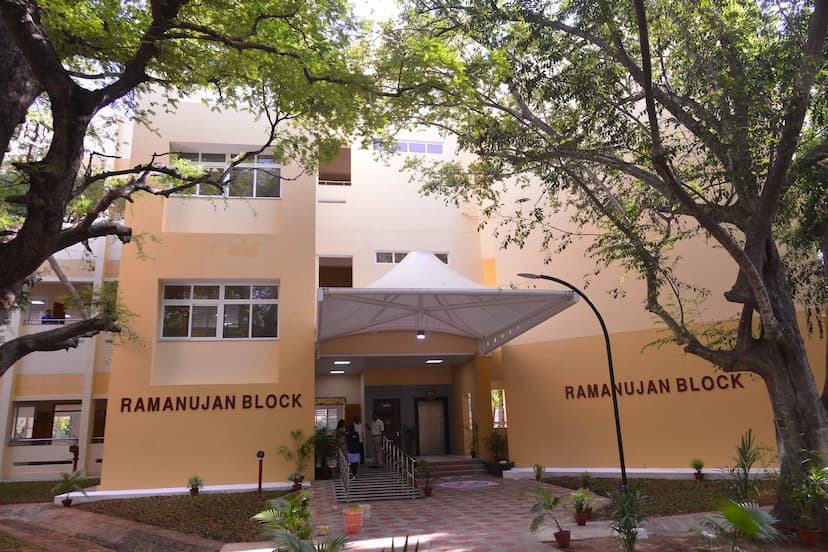Researchers of IIT Madras develop great tracking system

Researchers of IIT Madras have developed an ultrasound based temperature tracking for treatment monitoring.
Unlike other imaging modalities, ultrasound combines several advantages such as safety (non-ionizing), real-time capability and portability, among others.


The solution by researchers of IIT Madras involves diagnostic ultrasound signals from the tissue region of interest inside the body, where heating is applied non-invasively from outside either through microwave applicator or High-intensity Focused ultrasound (HIFU), and process these signals, specifically, using prior knowledge from physics of wave interaction with the tissue medium.
Researchers of IIT Madras develop great tracking system
Thermal Therapy using HIFU is already in use for treating solid tumours (both cancerous and benign). The current state-of-the-art technology monitors treatment using MRI (MR-guided HIFU).
A popular clinical case is for treating Uterine Fibroids.

The Technology developed by researchers of IIT Madras will be Ultrasound-based Monitoring, instead of MRI, thus making it accessible and affordable.
The practical uses of this technology brought out by researchers of IIT Madras are:
Ø Non-invasive treatment and real-time monitoring of the process

Ø Safe to use as no exposure to ionising radiation is involved
Ø Portable and suitable for point-of-care applications
Ø The ultrasound-based real-time feedback can be readily integrated with low-intensity ultrasound heat therapy devices that are commonly used in most physiotherapy centers.
Hyperthermia, likewise, has shown promise for several ailments.

Examples include using RF-electrode in liver disease treatment or disease of prostate.
Researchers of IIT Madras contribution is to monitor this in real-time when, specifically, microwave is used.
This combination makes it completely non-invasive and affordable.
The results from these studies by researchers of IIT Madras have been presented and published in various international IEEE society conferences over the last year.
Professor Arun K. Thittai speaks about advantages in the technology brought out by researchers of IIT Madras.
Having multi-parametric image feedback allows for accurate real-time monitoring for a wide range of thermal therapies, said Professor Arun K. Thittai of Department of Applied Mechanics at IIT Madras.
These techniques can be incorporated as a software in existing scanners by the manufacturers and thus does not require any special electronics hardware, he said speaking about the work by researchers of IIT Madras.
Currently, researchers of IIT Madras have demonstrated the feasibility of the methods using experiments done on tissue mimicking phantoms and ex-vivo tissue samples.
Researchers of IIT Madras are now working to convert these proof-of-concept methods to design an integrated microwave applicator cum ultrasound-based real-time imaging feedback for a possible clinical application.
The researchers of IIT Madras comprise faculty from Department of Engineering Design at IIT Madras for the microwave applicator aspect.
Also read ‘Students willing to study engineering can apply for these great 15 engineering entrance exams in 2021‘
A complete in-house set up for HIFU ablation has been established by researchers of IIT Madras from the Department of Applied Mechanic.
Thermal (heat) therapy is used routinely for pain relief and rehabilitation of target tissue by inducing mild temperature elevation (<42°C) on them, say researchers of IIT Madras.
Sufficient heating of target tissue inside the body (42°C-45°C: in hyperthermia; and >60°C in ablation) is also exploited as a treatment option for some disease, including ablation of cancerous tumor.
However, one of the major challenges that prevents these approaches from wide-spread use in clinical practice is the lack of reliable and affordable real-time feedback in the form of heat maps from the targeted treatment region, say researchers of IIT Madras.

Researchers of IITM have the advantage of having access to complete signal chain of raw ultrasound data, and not just the final ultrasound image, that allows us to develop methods for tracking multiple different tissue parameter maps.
The list of collaborators and partner institutes and funding agencies for this project by researchers of IITM are:
Ø Dr. Kavitha Arunachalam, Associate Professor, Dept. of Engineering Design, IIT Madras
Ø Mr. Aliarshad Kothawala, PhD scholar, Dept. of Applied Mechanics, IIT Madras (recently joined Philips India after graduation)
Ø Ms. Divya Baskaran, PhD scholar, Dept. of Engineering Design, IIT Madras
Ø HIFU-Facility was established partly with funds from DST under FIST program

Researchers of IIT M have filed for more than half a dozen technology patents in ultrasound imaging methods and devices in the last three years.
A start-up has also been spun-off to develop ultrasound scanner with proprietary technology that offers advanced and state-of-the art features, yet is affordable.
About IIT Madras
IIT M was established in 1959 by the Government of India as an ‘Institute of National Importance.’
The activities of the Institute in various fields of Science and Technology are carried out in 16 academic departments and several advanced interdisciplinary research academic centres.
IIT M offers undergraduate and postgraduate programmes leading to B.Tech., M.Sc., M.B.A., M.Tech., M.S., and Ph.D., degrees in a variety of specialisations.
IITM is a residential institute with more than 580 faculty and 9,500 students. Students from 18 countries are enrolled here. IITM fosters an active entrepreneurial culture with strong curricular support and through the IITM Incubation Cell.
S Vishnu Sharmaa now works with collegechalo.com in the news team. His work involves writing articles related to the education sector in India with a keen focus on higher education issues. Journalism has always been a passion for him. He has more than 10 years of enriching experience with various media organizations like Eenadu, Webdunia, News Today, Infodea. He also has a strong interest in writing about defence and railway related issues.






